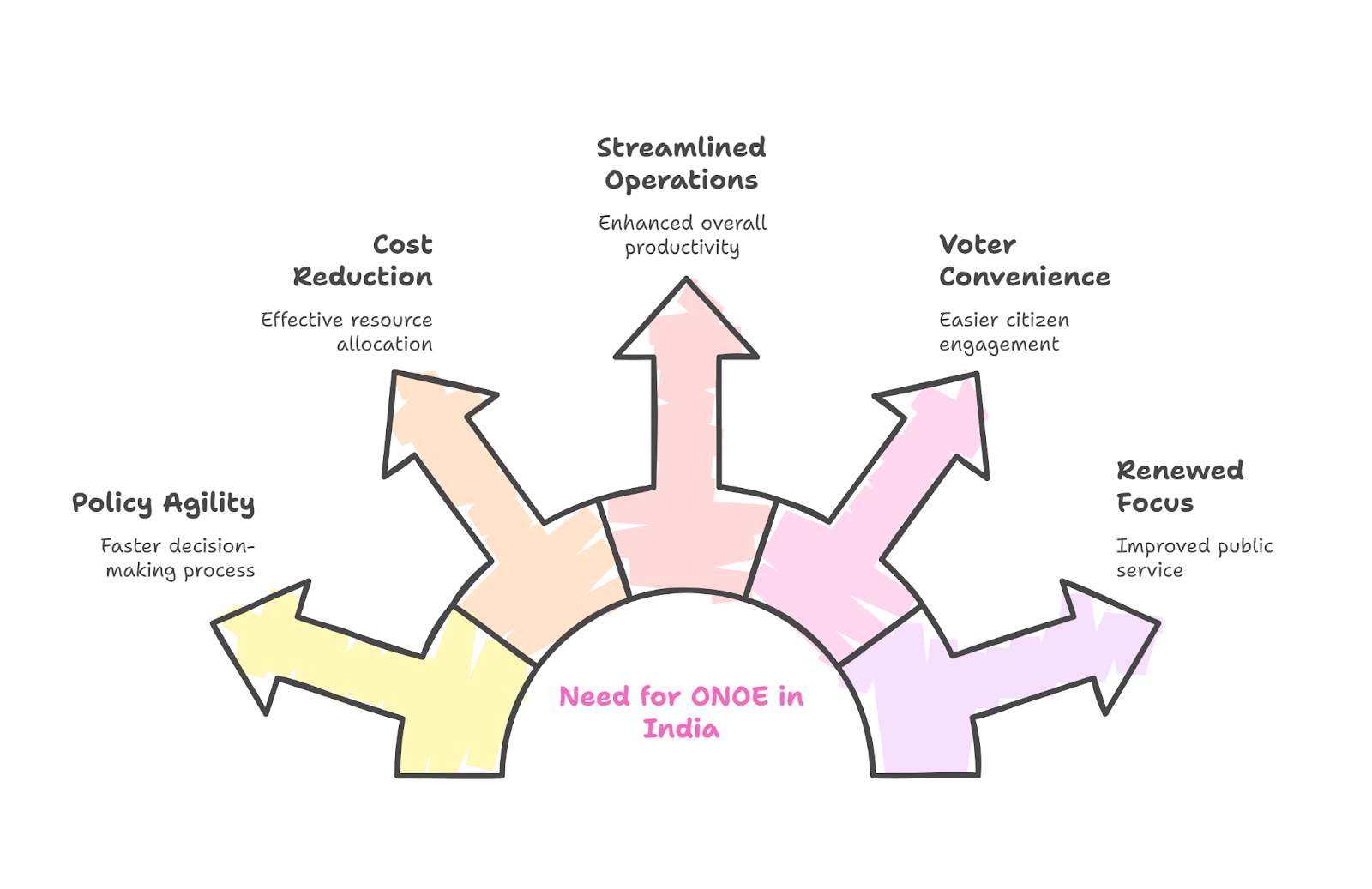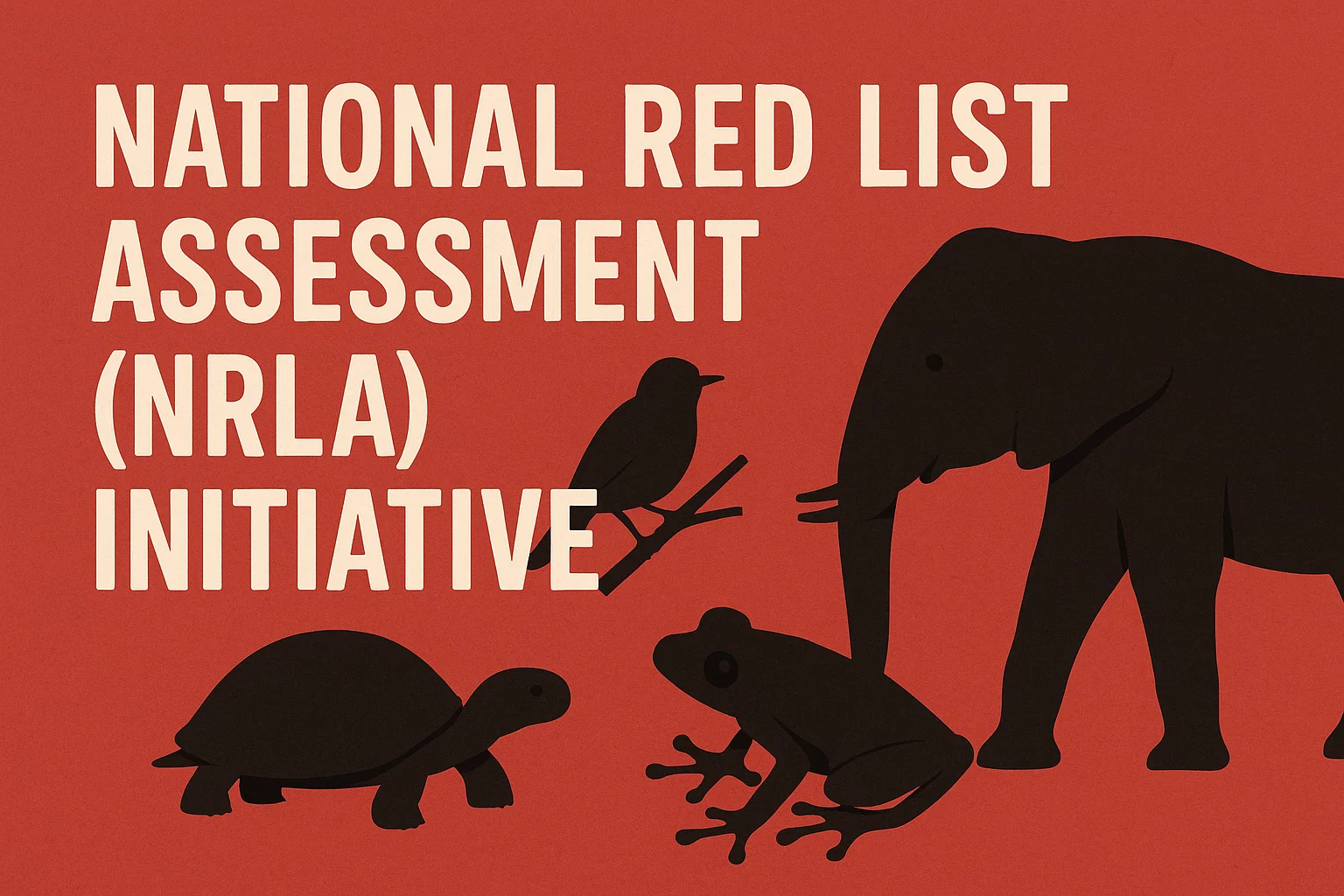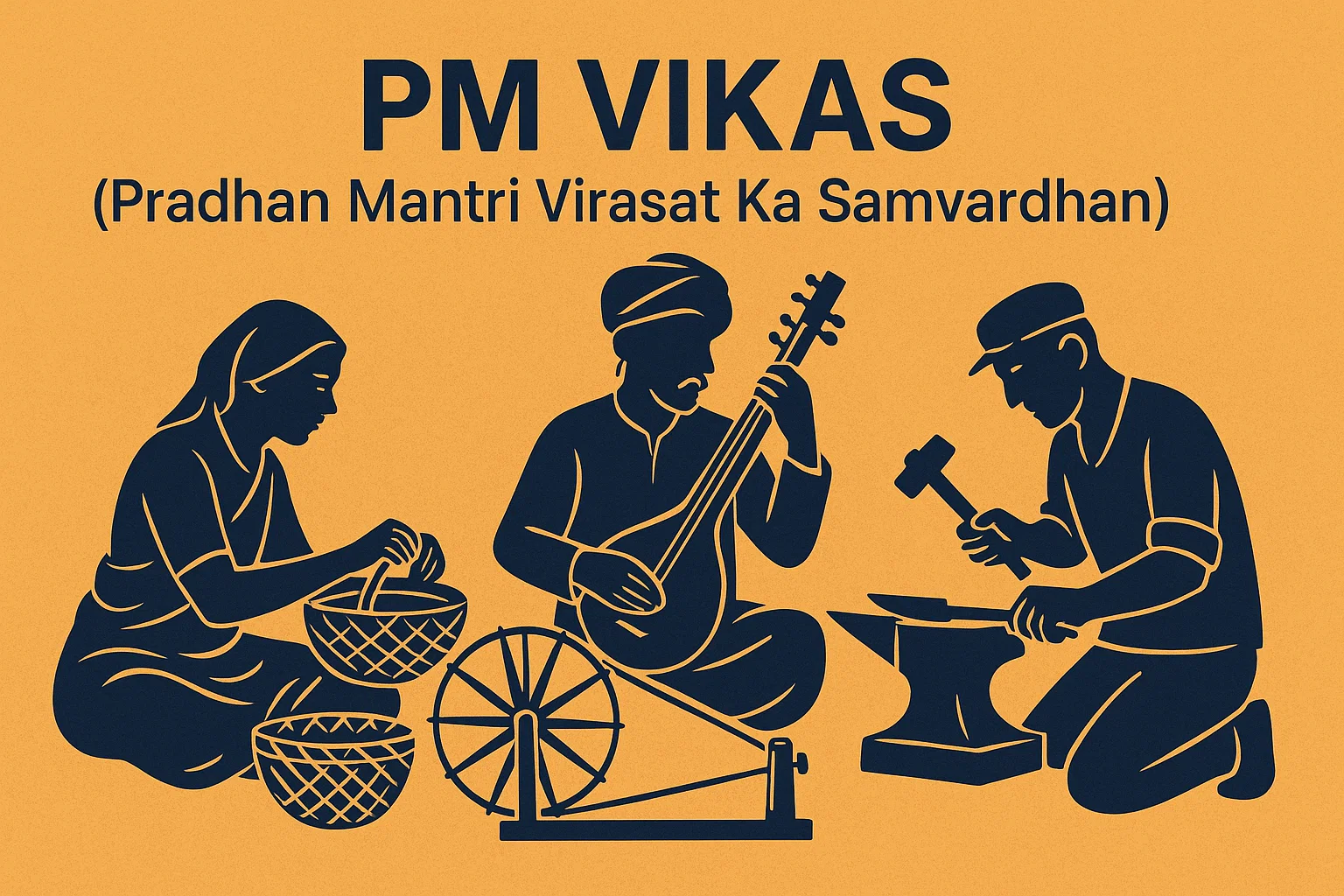Font size:
Print
Simultaneous Elections and Powers of EC
Context: A Joint Parliamentary Committee (JPC) is currently reviewing the Constitution (One Hundred and Twenty-Ninth Amendment) Bill, 2024, popularly known as the “One Nation, One Election” (ONOE) Bill.
What is One Nation, One Election (ONOE)?
- One Nation, One Election (ONOE) is a proposal to synchronise the election cycles for the Lok Sabha (the lower house of India’s Parliament) and all State Legislative Assemblies.
- The goal is to hold elections for both tiers of government simultaneously, or in a phased manner, within a specific timeframe.
- The core mechanism proposed in the 2024 Bill involves:
- Inserting Article 82A into the Constitution to facilitate the synchronisation of elections.
- Amending Articles 83 and 172, which currently dictate the terms of the Lok Sabha and State Assemblies, respectively, to allow for this new synchronised system.
- Creating a legal framework where an election to a state assembly, if dissolved prematurely, would only be held for the remainder of the term, ensuring the next election realigns with the next synchronised cycle.
- The idea is to move away from the current system where elections are held almost continuously throughout the year in different states and for the national parliament.

What are the major concerns?
Despite the proposed benefits, the ONOE proposal faces substantial criticism and legal hurdles, as highlighted by the former CJIs:
- Constitutional and Federal Challenges: The most significant concern is that it undermines India’s federal structure.
- Synchronisation could force a state government with a clear majority to dissolve its assembly prematurely if the Lok Sabha falls, or vice-versa, blurring the distinct mandates given by the electorate to state and national governments.
- Unfettered Power to ECI: As Justice Khanna pointed out, Clause 5 of the proposed Bill grants the Election Commission excessive discretion to decide when a state election cannot be held simultaneously.
- This power is seen as “arbitrary” and a potential violation of Article 14 (Right to Equality). Critics fear it could be misused for political ends.
- Threat of Indirect President’s Rule: The power to postpone state elections could effectively allow the Union government to run a state without an elected government for an extended period, functioning as a backdoor method to impose President’s Rule without invoking Article 356, which is subject to strict judicial scrutiny.
- Subversion of Democracy: If a state government loses its majority mid-term, forcing an election only for the remainder of the term could be seen as subverting the people’s mandate and denying them the right to elect a full-term government.
- Overshadowing Regional Issues: A major fear is that simultaneous elections would lead to national issues and national parties dominating the campaign narrative, thereby sidelining critical state-specific and local issues and marginalising regional parties.
- Logistical Nightmare: While aiming to simplify logistics, the sheer scale of managing a single election for over 900 million voters for both national and state levels presents an unprecedented logistical challenge for the ECI.


